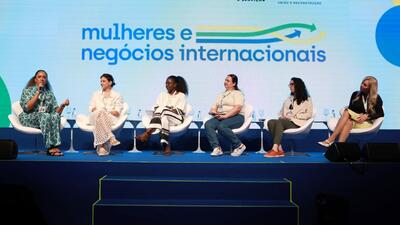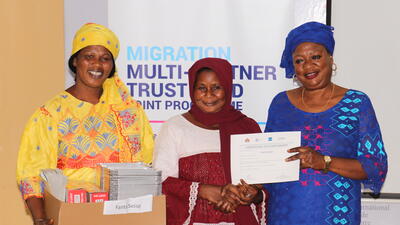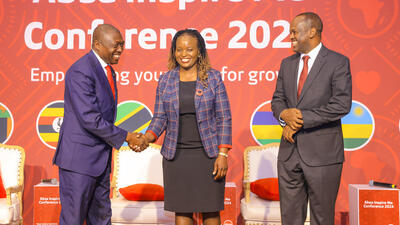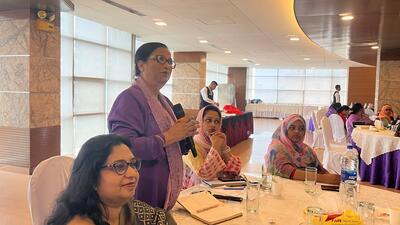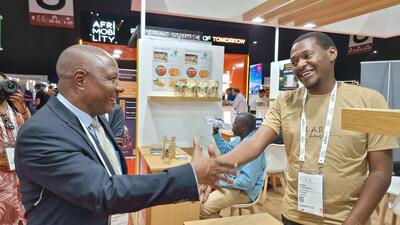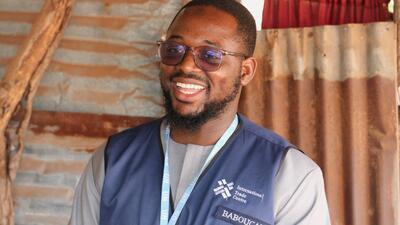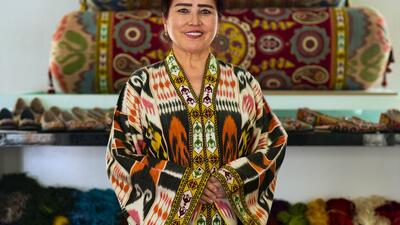Accessing markets
WEConnect International is a small non-governmental organization (NGO) with a big vision. Founded less than three years ago, the organization is striving to give women-owned businesses equal access to corporate and large-organization contracts. WEConnect is building a network of companies and institutions that recognize the value of opening their procurement processes more deliberately to women. The network currently represents over US$ 700 billion in annual purchasing power. WEConnect also identifies, educates, registers and certifies enterprises that are at least 51% owned, managed and controlled by one or more women.
International Trade Forum spoke with Elizabeth Vazquez, co-founder and chief executive officer of WEConnect, to learn more about how the organization brings together potential buyers and sellers in a more gender-equitable, mutually beneficial way.
Trade Forum: What drew you to this field of work?
Elizabeth Vazquez: I’ve always been interested in why so few people seemed to have so much power over so many. It comes from being raised by a single mother who had limited resources when I was very young and not a lot of education. As a child, I saw the situation my mother was in and came to understand that many women face similar challenges. It’s not that she was powerless, but with a little more access to knowledge and networks, our lives would have been a lot easier.
TF: How did you come to found WEConnect International?
Vazquez: When I was studying development economics, it was often assumed that women are victims. The development community does women a disservice by making this the starting point. When I began working with women business owners, I realized I couldn’t view them as victims. It’s not that they haven’t experienced hardship and discrimination because of their gender, but that’s not how most women entrepreneurs see themselves. Instead, they want to talk about the products or solutions they have created.
So in terms of development, this is a fundamentally different approach to women’s economic empowerment. Instead of assuming we need to help women, I think it is women who need to help us develop better and more sustainable ways of building businesses and communities.
WEConnect was first incubated by a non-profit organization I was working for at the time called Quantum Leaps, and then we incorporated it with a group of founding corporations committed to sourcing from women-owned businesses as a competitive advantage.
TF: What is the proposition that WEConnect makes to large buyers?
Vazquez: Worldwide, women own or operate 25% to 33% of all private businesses, according to the World Bank. Meanwhile, data collected by WEConnect shows that women are awarded less than 1% of global procurement spend. To address this massive disparity, WEConnect is not promoting quotas, but equal access and opportunity for them to compete.
Large organizations tend to engage with a limited pool of vendors; by excluding qualified women-owned businesses and others, they are missing out on cost savings and profit, and possibly some important innovations. Our role is to work with partners such as the International Trade Centre to locate women-owned businesses, certify them and introduce them to business opportunities while developing their capacity to compete. There is no other organization outside of the United States that does this with a market-based approach. So it’s exciting, pioneering work, and it’s a huge education campaign on both the demand and the supply side.
TF: Does WEConnect benefit small and large women’s enterprises equally?
Vazquez: There are always opportunities along the spectrum of a value chain; the question is where to fit in. More education is needed to ensure business women understand what the world wants to buy and then how to be part of the solution.
WEConnect is oriented towards enterprises that are established enough to credibly and competitively enter a value chain. While any woman-owned business that meets our criteria can self-register online to get into our vendor database and participate in local and online learning, only enterprises that complete the full WEConnect certification process, which includes a site visit, are granted direct access to WEConnect Corporate Members.
That said, there is value in small businesses engaging in our global network — not because they want to go after a large global contract, but because they want to understand how value chains work and how they might enter locally. Until they know what’s required within a given industry, they’re going to have a hard time competing.
TF: Is WEConnect’s vision attainable?
Vazquez: I have experienced a fundamental, monumental, critical shift in how people think about the role of women in economic prosperity and job creation. The question I used to get was ‘Why are you doing this?’ Now, people seem to get it. What they’re asking is ‘How do we do this?’





